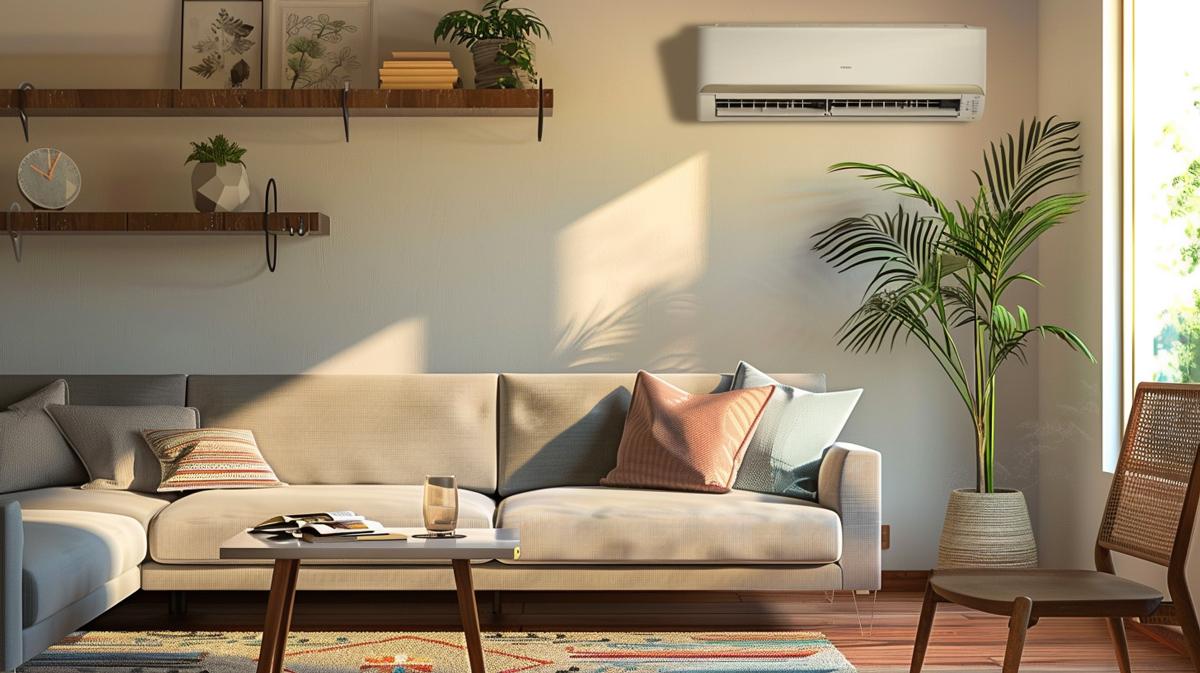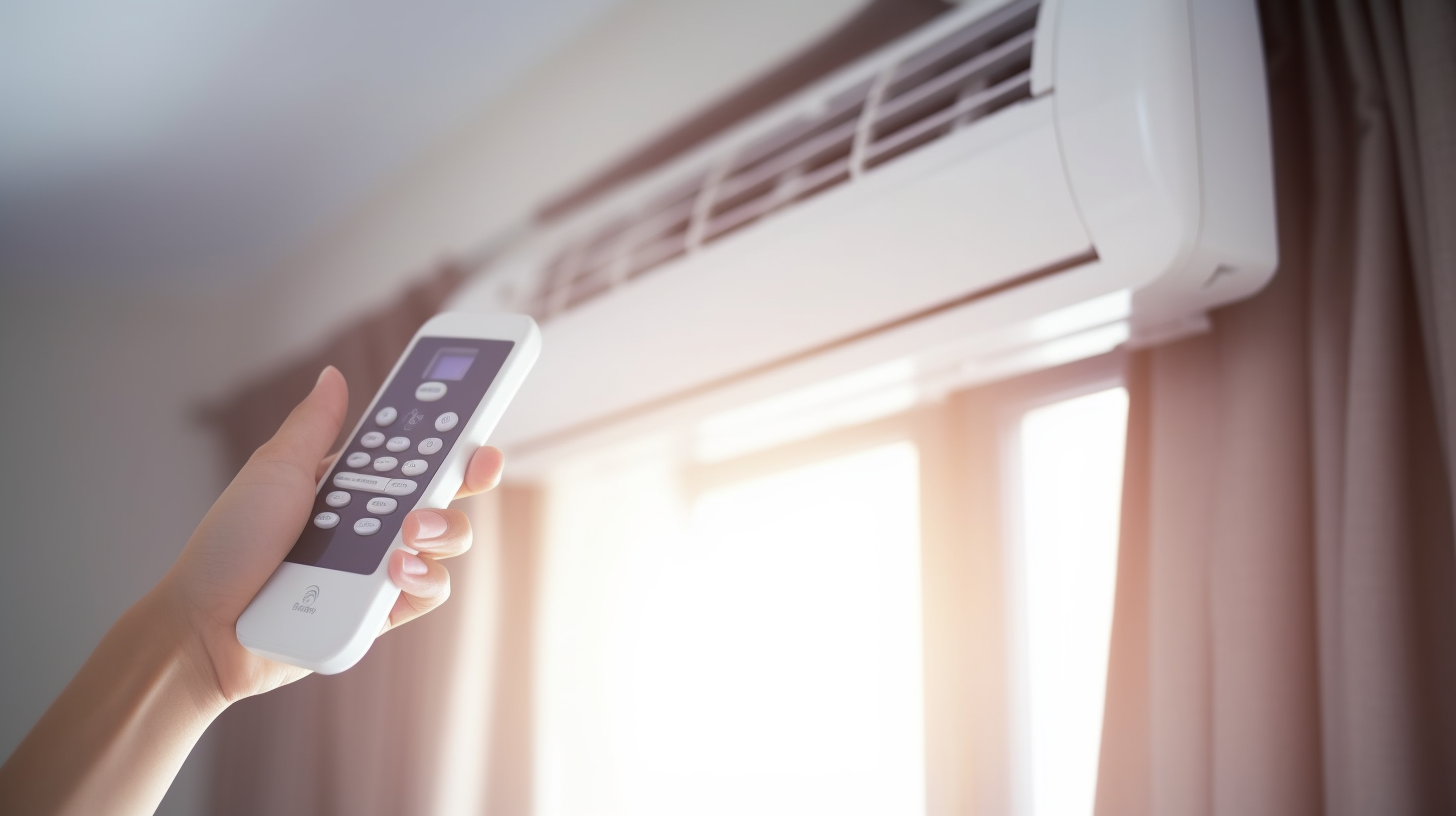


Last updated on August 25, 2023
G’day, mates! Brendan here from Coalfields Climate Control in the Hunter Valley of Australia. Let’s talk about a “cool” 🥶 subject – the most energy-efficient split system air conditioners available in the Aussie market.
With the temperature rising, having an efficient cooling system at home isn’t just a luxury; it’s an Aussie necessity. But it’s also important to be mindful of our energy consumption as, let’s face it, the prices are heating up. That’s why I’ve put in some hard yakka and have rustled up a list that’s jam-packed with the most energy-efficient split system air conditioners for you – no rip-offs or duds here.
Before I launch into the “cool” stuff, let’s get down to brass tacks and get clear on what I mean by “most energy-efficient split system air conditioner”. In simple terms, when I talk about an energy-efficient air con, I’m referring to how much cool air the system pumps out per unit of energy it consumes. Basically, how much bang for your buck. So, the most energy-efficient split system air conditioner is one that gives you the most for less, keeping your digs nice and comfy without making your energy bill skyrocket.
It’s written in the stars, or is it really? To ensure you get the most energy-efficient split system air conditioner, it’s worth checking out the stars or the energy standards, aka those bright red star stickers on everything. Let’s delve deeper into energy standards and efficiency in Australia. Every residential split-system air conditioner sold in our fair land has to meet minimum energy performance standards (MEPS). This means you can rest easy knowing that any new model you buy will be reasonably energy-efficient.
Manufacturers like our mates at Fujitsu, Mitsubishi, Daikin, and Rinnai register their models with the government Energy Rating system. Each air conditioner then receives a star rating label for cooling and heating. Based on the unit’s test results against the Aussie standard for air conditioners, these star ratings are an easy way to compare models.
Star ratings equate to greater efficiency. The more stars, the less the unit should cost to run, given it’s been installed correctly. So while a one or two-star model can do the job, a five or six-star model (or more) is clearly the better option, even if it might cost a bit more initially. Let’s face it, shelling out a bit more upfront is worth it when you end up with the most energy-efficient split air conditioner. We guarantee it’ll cost you less in the long run. Go for the Southern Cross amount of stars, or more, when you want true blue value.
And here’s some cool trivia for you: Since April 2020, new models are coming with a Zoned Energy Rating Label (ZERL). This shows three cooling star ratings and three heating star ratings based on the climate zone where the unit is installed. Because let’s face it, a most energy-efficient split system air conditioner perfect for a Sydney summer might not be the best choice for Darwin’s tropical climate. So these zone ratings help you choose the best model for your local conditions and needs. Heads up; if you’re in Darwin, QLD or Sydney, we also recommend something that can keep the moisture at bay – because no one loves a mouldy couch.
Let’s discuss some contenders in the most energy-efficient split system air conditioner category. The top players in this game are Mitsubishi, Daikin, Fujitsu, and Actron Air. These legends have done their homework and have some top-notch units that provide maximum cooling for minimum power. To save you from spending hours of time digging, I’ve compiled a list of my top recommendations for the most energy-efficient split system air conditioners and even divided them into small, medium, and large unit categories.
Our recommendations are based on Star ratings and the system’s energy efficiency when it’s not in use, i.e., how much juice they suck up while waiting for you to hit the “on” button.
The most energy-efficient split system air conditioners are (in no particular order).
In the category of small units, good for a bedroom or study, I recommend considering the following models based on their energy efficiency ratings:
For medium units suitable for a large bedroom or living room, check out:
And if you’re looking to cool large open-plan living areas, have a look at:
If you want to combine my chock-a-block guide full of info with your own research, I’d recommend taking a gander at brands such as Haier, Daikin, and Actron Air for the most energy-efficient split system air conditioners. All of them are leading the way with tech that keeps your place liveable without costing you a fortune.
We love the bush, and let’s face it, our Aussie animals are one of a kind, so what about air-cons and the environment? There’s a bit of talk that air conditioners aren’t environmentally friendly. While they use electricity and contain refrigerant gases that contribute to global warming, a quality modern air conditioner is a highly energy-efficient form of cooling and heating. To make yours especially bush-friendly and save yourself some dollars, it’s worth insulating your home, using the air conditioner only when necessary, and running it on solar power.
Even the most energy-efficient split system air conditioner can end up costing you big bucks if you use it like a drongo.
Get the temperature right: Don’t set your air con to arctic temperatures, a comfy 24 degrees is just right. If it’s a bit chilly sometimes, chuck on some Uggs and a Flanno, and you’ll be right, mate.
Your air conditioner likely has a timer function. Don’t be a galah, just use it. Don’t have it running when you’ve popped down to the pub for a cold one with your mates.
Keep your air con in top shape to ensure it runs at its best. Your best bet is to get a specialised tradie to come out once every so often and give it the once over.
Proper insulation keeps the cold air in and the hot air out, so your unit doesn’t have to work overtime. Like your nana, get a door sausage if you’ve got drafty doors and windows; seal up those cracks.
The most energy-efficient split system air conditioner is more than just cooling; it’s longevity. A good air conditioner should last at least six years, often over a decade. Most brands offer five-year warranties, while others like Hitachi offer six years and Teco seven years. You’re always covered by the Australian Consumer Law- make sure you suss out your warranty options before buying. It can seem like a snooze-fest, but it could save you from getting ripped off if you accidentally bag a lemon.
That’s it, folks; Brendan from Coalfields Climate Control saying hoo roo on my comprehensive guide to the most energy-efficient split system air conditioners. From one digger to another, take my advice and save yourself some dosh by getting one of my true blue top picks above.
Here’s to staying cool and energy-efficient! Until next time, mates!

